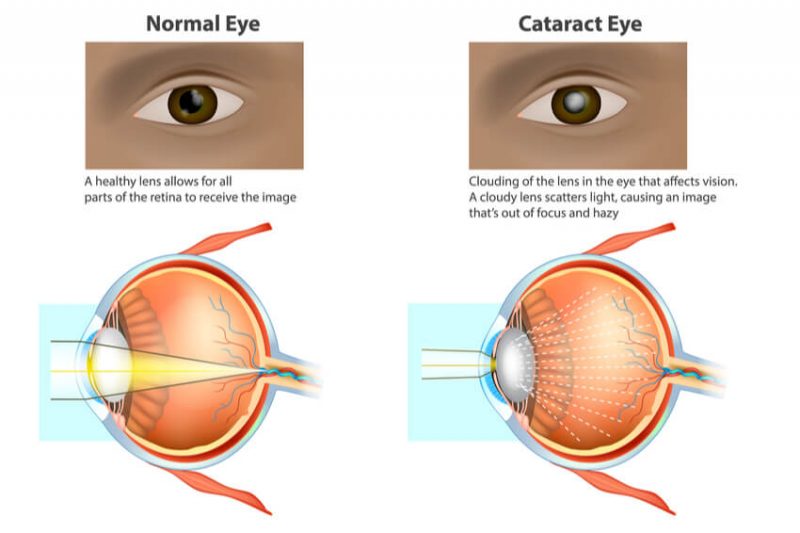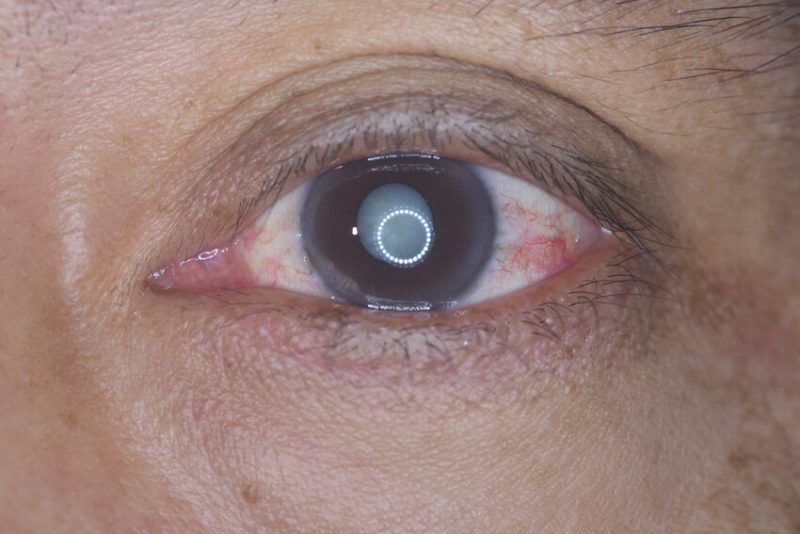Everything You Need To Know About Cataracts This Summer
Cataracts are one of the most commonly reported eye health issues among adults, with the risk for developing them increasing significantly after the age of 40.
What Are Cataracts?
Cataracts are the result of a clouding of the lens. This affects a patient’s ability to see, causing blurred vision and their eye to appear opaque or cloudy. Most people will experience cataracts at some point in their lifetime, with the majority being over the age of 60. If left untreated, cataracts can cause permanent vision damage.

What Causes Cataracts?
One of the most common causes of cataracts is cumulative exposure to UV rays over time. Harsh UV are made up of different rays, one of which is UVA, which can penetrate the eye and cause damage to the retina. The World Health Organization estimates that up to 20% of cataracts worldwide may be caused by overexposure to UV radiation.
Taking steps to limit exposure to the sun is the best defense in reducing the risk of developing cataracts, as is understanding the risk factors and symptoms associated with this condition.
Signs of Cataracts

The most common symptoms of cataracts include:
- Blurred or cloudy vision
- Decrease ability to see at night or halos around light
- Reduce clarity and colour vibrancy
- Increased light sensitivity
Cataract Treatment Options
The best way to ensure excellent treatment results for cataracts is through early detection. Schedule regular eye exams with your optometrist to ensure your eyes are healthy. Our experienced optometrists will use a slit lamp to assess the front surface of your eyes for any ocular surface problems, such as dry eye, and to examine the lens of your eye for signs of cataracts.

They will then assess your macula (responsible for your central vision) and optic nerve (that connects your eye to the brain) at the back of your eye for any damage that may result in visual loss.
If you have been diagnosed with cataracts, we offer treatment solutions to restore and improve your vision. Early cataracts can sometimes be managed with special prescription glasses or contact lenses. The most common option for advanced cataracts is to surgically remove them.

If your optometrist determines that you will need cataract surgery, they will refer you to an eye surgeon to remove the old, cloudy lens and replace it with a new, artificial clear lens to restore your vision. In most cases, you will then likely require an updated glasses prescription. Cataract surgery is a straightforward, painless, and fast procedure, and your eyes should usually be completely healed within 6 weeks.
How Do I Reduce My Risk Of Developing Cataracts?
The first step to reducing your risk of cataracts resulting from sun exposure is to limit your time in the sun and wear sunglasses. Our optical team can help you find the right pair of sunglasses that provide 100% UV protection from the sun’s harmful rays.

It is also important to maintain a healthy diet that is rich in antioxidants such as apples, blueberries, greens, and red berries.
Our expert team has the knowledge and expertise to help our patients find the right treatment solutions for cataracts. We offer state-of-the-art surgical and nonsurgical cataract treatment options and are committed to helping our patients experience the best vision quality possible.
Contact us to arrange your eye exam today.

